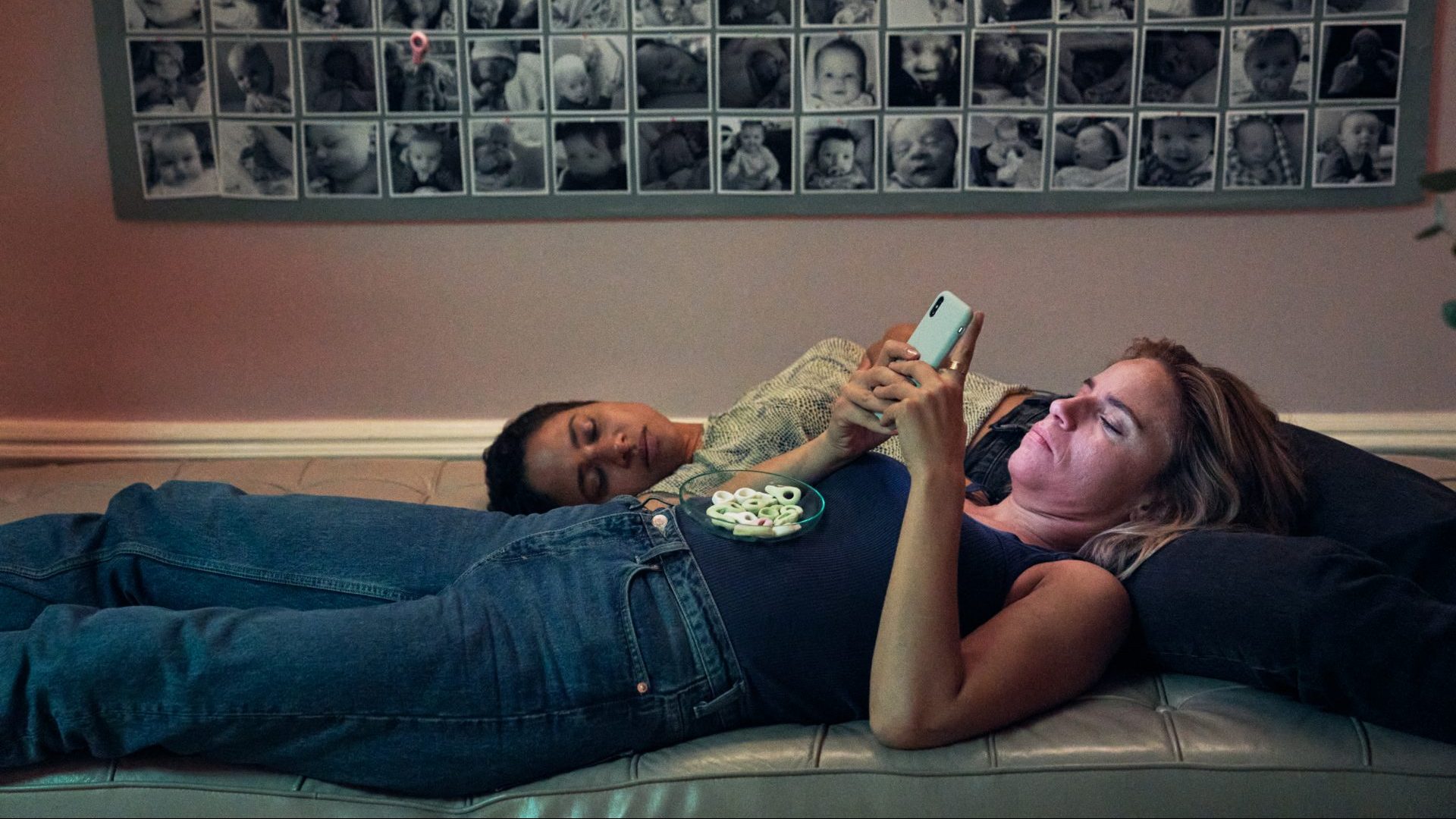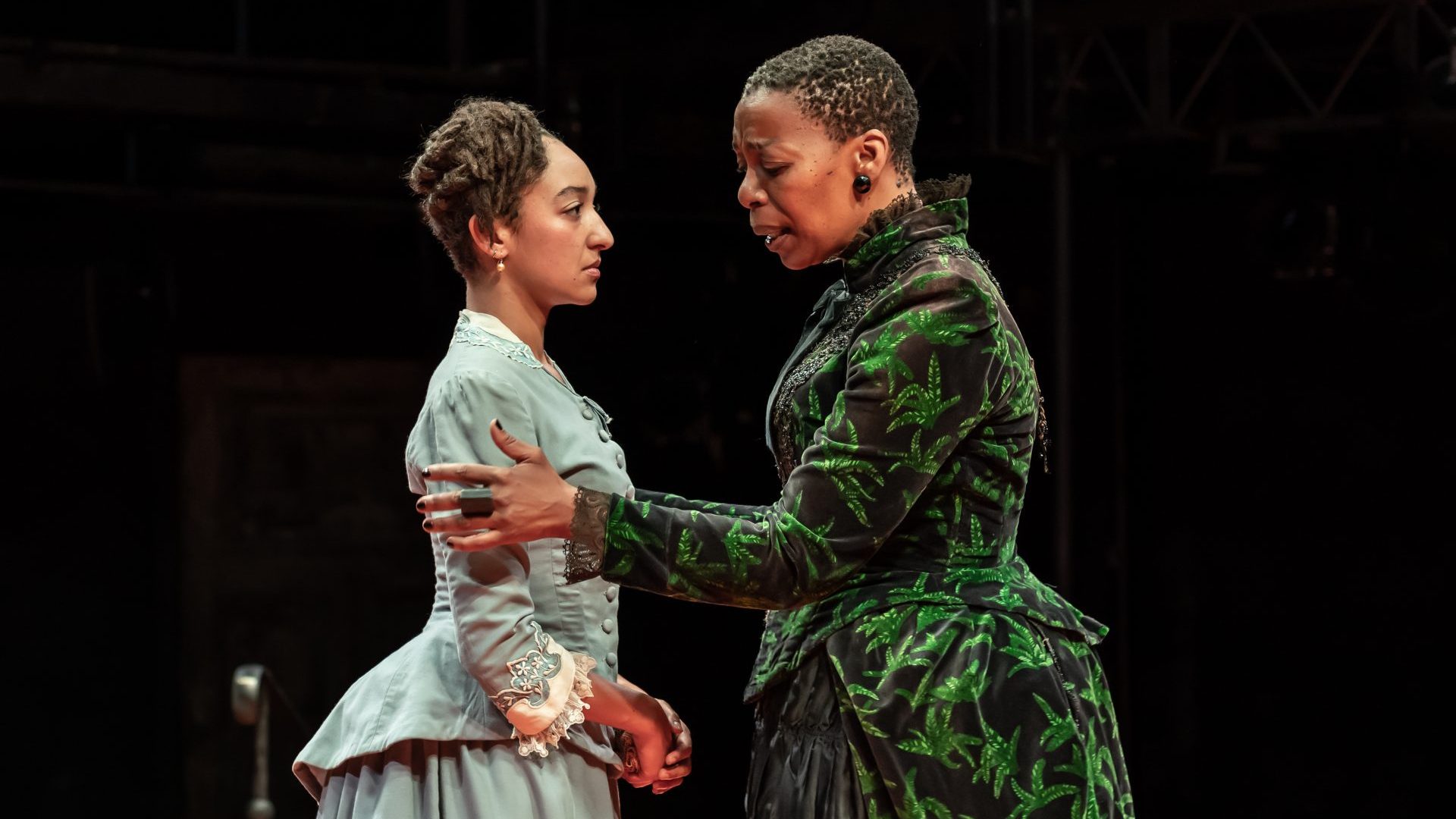For women of my age, even those of us with a nonexistent relationship to
having children can become keenly sensitive to the topic. It’s a strange situation, difficult to tell just how much of your new attunement is down to externally imposed expectations, or the much-heralded biological clock finally beginning to audibly tick, or maybe just a need to figure out a coherent response to have at the ready when people ask about your situation.
I’ve never had more than a detached curiosity about wanting children, which I can’t believe is the best condition to raise them in. The fact that my social life will begin to be transformed, and that babies will be the next frontier for at least some of my friends, feels startling – I think that situation hurtling towards me is what compels my interest in stories about women getting pregnant, trying to figure out something that still seems so alien to me. All of
which is to say that I am a prime target audience for the new Danish Netflix
comic drama Baby Fever, which is just as well frankly; despite some great performances and comedic episodes, narratively there is nothing much here except that of the pivotal conception at the heart of the story.
Nana (Josephine Park) is a talented fertility doctor who maintains a high rate of success with artificial insemination. She is calm and competent and reflexively invents relatable personal back stories for herself to reassure her nervous clients, some of whom are paying a lot of money for their last shot at getting pregnant.
To the half of a lesbian couple who is not carrying the baby and who feels left out, Nana says that ironically although she carried the children, it’s her partner whom they all prefer. To the single woman who is afraid of having a baby alone, she says that she was a single mother already when she met the love of her life by total chance and that they remain madly in love.
In reality, Nana’s personal life is portrayed as empty and arid – I say “portrayed” as I don’t want to imply that a woman who lives on her own and is single is necessarily unhappy and bored, but Nana is. She is nearing 40 and alarmed to find, when testing a new ultrasound machine with the help of the clinic nurse, her best friend Simone (a brilliant Olivia Joof Lewerissa) that she only has six months of viable fertility left.
When Nana then bumps into a lost love, Matthias, at the clinic where he is depositing a semen sample, her frustrated malaise is transformed into a new, barrelling sort of mania. The two go on a date, but she is too agitated
to let it proceed in a normal way and spoils things by asking if he wants
children.
After the soured date, she gets drunk in the clinic with Simone, singing karaoke and making a mess of her office, and when Simone asks her to
lock up the sample store, she is seized by the irresistibly terrible idea of
inseminating herself with Matthias’s sample.
The conceit bears a striking resemblance to the story of the Jeffrey Eugenides story Baster, latterly adapted into a romantic comedy named The Switch, in which the thwarted friend-zoned Jason Bateman drunkenly swaps his own semen for that which is due to be used to artificially inseminate the woman he is in love with, played by Jennifer Aniston. In that movie and in Baby Fever, the crucial obstacle to overcome is believing that anyone, let alone someone portrayed as generally sane, kind and reasonable, would do such a bizarre and extreme thing.
Park is such a likeable, sympathetic actor that you just about believe in the reality of the situation, which underpins the rest of the series. She is attractive and natural and melancholic and you want to keep watching in the hope that this very worthwhile person finds a way out of the unstoppable
mess she has created and finds some happiness. Her impulsive act has spiralling ramifications, not least of which is her friend Simone, a single
mother, being fired for leaving the sample stores unlocked. Meanwhile, Nana frantically tries to find a way to get Matthias to sleep with her in time
for it to be a plausible natural conception. He has issues of his own, however – the sample he gave was not just altruistic but to be saved because he has a serious illness.
There are enough moments of both emotional candour and humour to justify the six 30-minute episodes, and enough twists to keep it pacey and fun, but mostly what Baby Fever lacks is a genuine insight into why Nana, an
apparently self-contained person who at worst is suffering from a generalised midlife malaise, is so acutely certain she must have a baby.
There is little examination of what is driving her sudden need – it is presented as something inevitable – nor any criticality towards the idea of
having children as a solution to boredom and inertia: a little more attention paid to the context of this desire and this would have been a knockout.
Baby Fever is now streaming on Netflix




